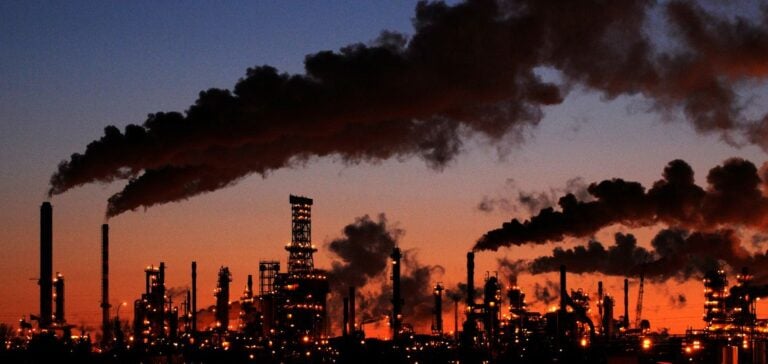Emissions of methane, the main greenhouse gas after carbon dioxide (CO2), continue to rise despite efforts to limit them.
Concentrations in the atmosphere have reached levels 2.6 times higher than in the pre-industrial era, according to a recent study by the Global Carbon Project.
This phenomenon worries energy and climate stakeholders, as methane has a much higher warming potential than CO2 over a 20-year period.
The majority of methane is linked to human activities, with around 60% coming from agriculture, fossil fuels and waste.
The remainder comes from natural sources such as wetlands.
Growth in methane emissions has been particularly marked in recent decades, rising from 6.1 million tonnes per year in the 2000s to 20.9 million in the 2010s, and reaching 41.8 million in 2020.
Impact of Energy and Agricultural Activities
Activities linked to the extraction and use of fossil fuels, as well as ruminant farming and organic waste management, remain the main contributors to methane emissions.
The production and consumption of coal, oil and gas play a key role in this increase.
Anthropogenic emissions continue to rise in most countries, with the exception of Europe and Australia, where they are slowly declining.
At the same time, natural factors are amplifying this trend.
Climatic events such as La Niña, which favor humid conditions, stimulate methane production in tropical wetlands, the primary natural source of this gas.
Fluctuating methane concentrations reflect these complex dynamics between natural and anthropogenic sources.
International Targets and Actual Emissions
Global methane reduction targets, such as the “Global Commitment” launched in 2021 by the European Union and the United States to cut emissions by 30% by 2030, are struggling to materialize.
Over 150 countries have signed up to this commitment, but key economies such as China, India and Russia have not.
This situation complicates the international coordination required for effective reductions.
Bilateral efforts between China and the USA, which include a summit on non-CO2 gases, could pave the way for new agreements.
Analysts point out that these ambitious targets may be difficult to achieve without stricter policies and greater cooperation between major emitters.
Managing methane emissions requires a coordinated approach that combines regulation, technological innovation and improved industrial practices.
Challenges and strategies for the future
At a time when the current trajectory of methane emissions is jeopardizing long-term climate objectives, industry experts are stressing the importance of rapidly reducing emissions to limit global warming.
Improving the management of methane leaks in oil and gas infrastructures, optimizing agricultural practices, and modernizing waste management systems are all levers for action.
Methane represents both a challenge and an opportunity for global energy policies.
Reducing emissions could bring rapid climate benefits, while paving the way for new technologies and innovations in the energy sector.






















